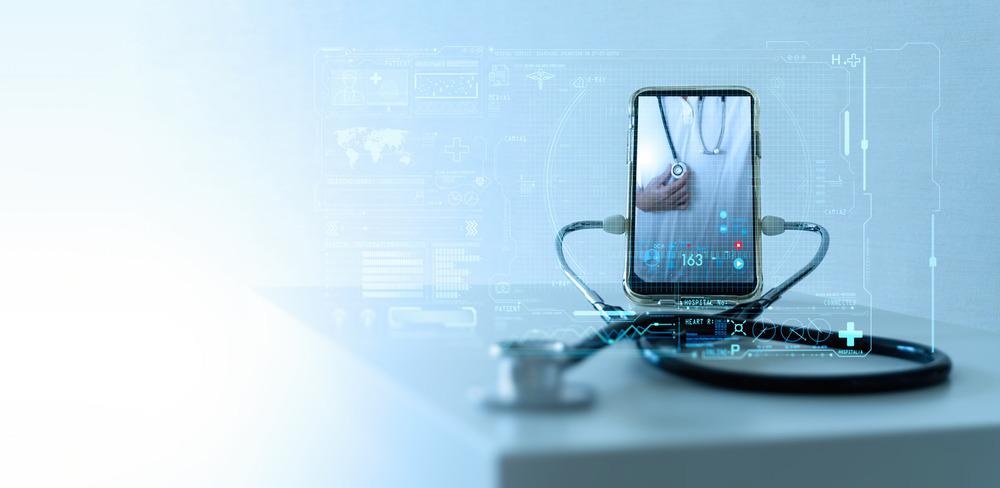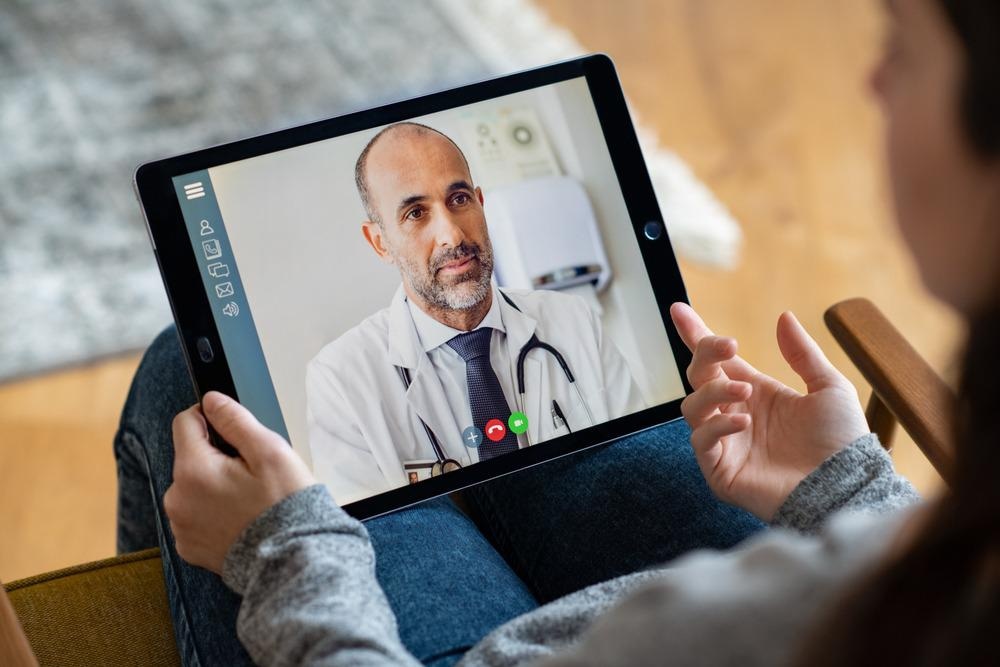Introduction
What is Health Technology?
A History of Health Technology and its Advantages
Health Technology in China
Health Technology: Leveraging Blockchain in the USA
Telehealth Technology in Germany
The Future of Healthcare Technology
References
Health technologies can support the implementation o effective national health and care systems. These are defined as data-enabled infrastructure that supports policy and planning. In addition, they can inform effective public health and personalization of care.
The COVID-19 pandemic has provided an opportunity to determine how health information technology can be used to improve the current health and cat infrastructures in place. It has revealed that leveraging health information technology and applying the principles of a national learning health and care system can inform the response to a major public health concern.

Image Credit: greenbutterfly/Shutterstock.com
What is Health Technology?
The World Health Organisation (WHO) defines health technology as the application of organized knowledge and skills in the form of medicines, vaccines, medical devices, and procedures, alongside systems that are used to solve numerous health problems and improve the quality of life across the world.
Organizational systems are the most salient form of health technologies; however, pharmaceuticals, procedures, and devices also use computer and data-leveraged information systems to optimize their function.
Within computer-supported information systems, predictive analytical algorithms have been deployed within healthcare organizations to analyze resource shortages and plan for them ahead of time.

 How has the COVID-19 Pandemic Impacted the Adoption of Digital Health Technology?
How has the COVID-19 Pandemic Impacted the Adoption of Digital Health Technology?
A History of Health Technology and its Advantages
Before the digitization of healthcare, patients were more likely to suffer harm due to inefficient and faulty chemical systems conditions and the process is. Several medical errors arose due to undeveloped technology and included adverse drug events and alarm fatigue.
Alarm fatigue continues to be a problem. However, it was exacerbated before technology development. It is defined as repeated triggering or activity of alarm systems that result in the responder becoming desensitized. Because of technological development, integrating both physiological cues and algorithmic analysis reduced the incidence of false alarms.
As a consequence of greater investment in health technology, fewer medical errors result. In addition, health technology-enabled healthcare organizations move away from outdated paper records to electronic health records. This resulted in greater patient empowerment and efficient documentation of medical history. Overall, health technology has resulted in improvements in Drug Administration, access to medical information, integrated healthcare, improved diagnosis and treatment, improved public health, and increased economic savings as well as scalability of services.
Although improvements have been made in health technology, there are several opportunities for improvement to help diagnose accurately, reduce risk to patients, and improve outcomes and life expectancy.
Health Technology in China
According to data from the Organisation for Economic Cooperation and Development, there are discrepancies between doctor-to-patient ratios. For example, there are 2.0 doctors per 1000 people in China, whereas in the UK, there are 2.9 doctors for every 1000 people.
This subsequently results in an average of 29.3 hours per week spent by patience online to circumvent the logistical issues of delivering and receiving healthcare. 25% of this time is spent on medical-related activities cariad for doctors; this is 29.2 hours a week, of which 53% is spent on medical-related activity.
In China, a prominent Internet provider Tencent has built a digital infrastructure that facilitates the patient booking of appointments and expands the use of the messaging app WeChat to enable patients to pay for their medical bills. More recently, it has expanded the capacity to include real-time online consultations mediated through WeChat. Artificial intelligence (AI) is being expanded in China's healthcare sector and forms part of the government's Made in China 2025 plan. It is believed that AI-powered healthcare technology will improve patient and physician connectivity, increasing diagnosis, with subsequent improvement in patient outcomes.

Image Credit: Rido/Shutterstock.com
Health Technology: Leveraging Blockchain in the USA
Blockchain technology is an innovation in the healthcare technology industry. It enables a user-centered means of gathering health information securely and ensuring that it can be verified unshared. Blockchain systems provide a transparent and distributed ledger of records that cannot be altered without recording a change. This technology is useful oh providing robust safeguards for patient information as the technology can anonymize patient data while providing a means of distributing information across diverse and fragmented healthcare systems (it is interoperable).
In the United States, the Food and Drug Administration (FDA) began piloting a program to support the United States Drug Supply Chain Security Act (DSCSA). This was piloted to address the requirements necessary to identify, track, and trace prescription medications and vaccine distribution.
This pilot program demonstrated the utility of blockchain in connecting disparate systems and organizations to facilitate complete product traceability. It also demonstrated patient safety as it reduced the time taken to inform the supply chain of a product recall, reducing it from a few days to a few seconds.
This program demonstrated that blockchain networks may have a role in reconciling the fundamental tension between the benefits of cross-industry data and the need to maintain private, proprietary information. It also is thought to be essential in eliminating supply chain risk. Owing to the success of this initial pilot program, there are plans to move towards an industry standard for the interoperable blockchain.
Telehealth Technology in Germany
The COVID-19 pandemic has increased dependency on telemedicine via several digital platforms. Many healthcare providers pivoted to offering appointments through these platforms. In countries charging their citizens for health care, it offered reimbursement for telemedicine and the provision of better billing options. Its use during the pandemic has demonstrated that these robust technology ecosystems suitable for supporting telemedicine have a place in the future owing to their convenience and flexibility.
They provide a means of connecting geographically isolated patient populations, oh people who work nontraditional hours, as they expand the options for connecting with clinicians via video software installed on a computer or a mobile app installed on phones.
Germany is considered to be at the forefront of the digital health transformation aided during the pandemic as it continually innovated and adapted its legislation accordingly. In 2019, DiGa Fast-Track was created by the Digital Healthcare Act; in addition, several legislative changes resulted in the cost of apps being reimbursed through German health insurance after being prescribed by doctors.
German video-consultation platform Doctor Konsultation.de was one such provider – and experienced heightened demand in the pandemic.
The pandemic has been a crucial driver in healthcare technology, increasing the dependence and deployment of virtual care and telemedicine. It has since been established as a major component of care delivery. Consequently, health system governance-mediated investment and reshaping of health systems across continental organizations, regulatory bodies, etc. are necessary to ensure that telemedicine and other forms of health technology are improved and adapted in response to changes in regulation and patient-clinician demand.
The Future of Healthcare Technology
This evolution of digital health technology is crucial in reducing the harm to patients as well as ensuring efficient use of hospital resources and enabling economic sustainability.
A core component of this evolution is interoperability as new models of care are emerging and evolving. Interoperability will enable effective information sharing between care settings, organizations, and geographical locations on a large scale and facilitate information sharing on a smaller scale between professionals and patients to optimize patient outcomes and quality of care. This is hinged on the ability of IT systems across health and care to be interoperable, i.e., compatible with one another.
References:
Further Reading
Last Updated: May 31, 2022